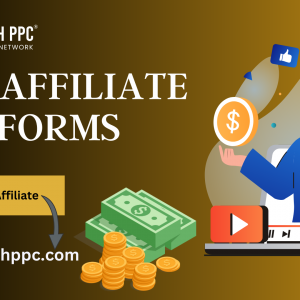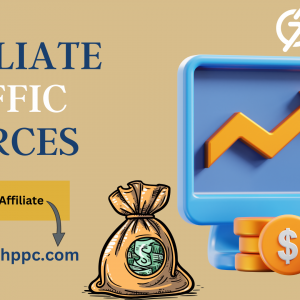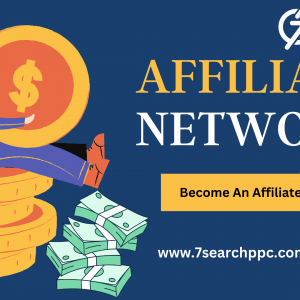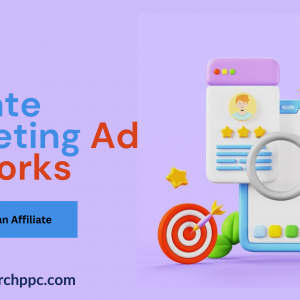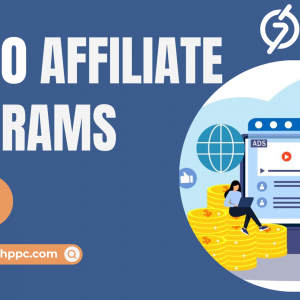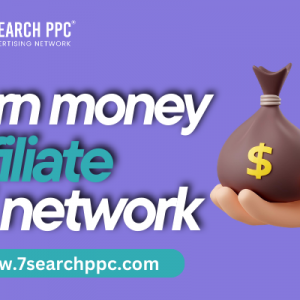In the world of affiliate marketing, where you can earn commissions by promoting products or services, PPC (Pay-Per-Click) affiliate marketing stands out as one of the most effective strategies. PPC affiliate marketing allows affiliates to earn money by driving traffic through paid ads, leading to potential high earnings when done correctly. This guide will introduce you to PPC affiliate marketing, outline the best practices, and help you maximize your earnings.
Become An Affiliate
What is PPC Affiliate Marketing?
PPC Affiliate Marketing combines pay-per-click advertising with affiliate marketing strategies to drive traffic to affiliate offers. In PPC affiliate marketing, affiliates use paid ads (on platforms like Google, Facebook, and Bing) to attract potential customers to their affiliate links. Every click, conversion, or action generated by the ad can lead to commissions for the affiliate.
How Does PPC Affiliate Marketing Work?
PPC affiliate marketing involves several steps:
- Choosing an Affiliate Program: First, you’ll select an affiliate program in your chosen niche. This could be a direct partnership with a brand or through affiliate marketing networks like ShareASale, ClickBank, or Awin.
- Setting Up PPC Ads: Affiliates create paid ads on platforms like Google Ads, Facebook Ads, or Bing Ads. These ads target specific keywords or audiences that may be interested in the product or service.
- Driving Traffic: The ad directs users to the affiliate’s landing page or website, where the affiliate link is placed. When a visitor clicks the link, they are directed to the merchant’s website.
- Earning Commissions: When a visitor completes a desired action (like making a purchase or signing up for a service), the affiliate earns a commission based on the program's payment structure.
Benefits of PPC Affiliate Marketing
High Earning Potential
PPC affiliate marketing offers a substantial income potential, as you can reach a wide audience quickly. By carefully targeting your ads, you can generate high-quality leads likely to convert, increasing your earnings.
Rapid Traffic Generation
Unlike SEO, which can take months to produce results, PPC ads offer instant visibility. When done correctly, PPC affiliate marketing can generate traffic and results almost immediately.
Targeted Advertising
PPC advertising platforms allow you to target specific demographics, interests, and behaviors, ensuring that your ads reach people who are more likely to click and convert.
Top Platforms for PPC Affiliate Marketing
Choosing the right PPC platform is essential for success in PPC affiliate campaigns. Let’s explore the three main platforms that affiliates use for their PPC campaigns.
7Search PPC
7Search PPC offers affiliates high commissions and access to a variety of advertisers across niches, making it an excellent choice for those looking to earn through PPC.
Google Ads
Google Ads is the most popular PPC platform, offering access to billions of search queries daily. With Google Ads, affiliates can target users based on keywords, ensuring that their ads reach people actively searching for specific products or services..
Facebook Ads
Facebook Ads provides affiliates with robust targeting options based on user demographics, interests, and behaviors. It’s ideal for promoting products that appeal to specific age groups, interests, or regions.
Bing Ads
Bing Ads (now known as Microsoft Advertising) offers a smaller audience than Google but can be more cost-effective due to lower competition. Bing Ads is often overlooked, yet it can be a valuable platform for PPC affiliate marketers.
Best Practices for Successful PPC Affiliate Marketing
Choose a Profitable Niche and Product
Selecting a profitable niche with high-demand products is crucial. Look for niches with high commission rates, such as finance, health, tech, and online services.
Create High-Quality Landing Pages
PPC platforms often have strict policies against direct affiliate links. To comply, create high-quality landing pages that add value to the customer and encourage conversions.
Use Targeted Keywords
When running Google or Bing Ads, conduct keyword research to identify terms with high search intent. Using specific keywords helps attract a relevant audience, increasing the chances of conversions.
Optimize Your Ad Copy
Create compelling ad copy that addresses the audience’s needs and pain points. Use strong calls-to-action (CTAs) and highlight benefits to encourage clicks.
Track and Optimize Your Campaigns
Use tracking tools like Google Analytics or the platform’s analytics features to monitor your campaigns. Regularly check which ads are performing well and adjust your budget accordingly.
Monitor Your Budget Carefully
PPC can become costly if not managed carefully. Set a daily budget, monitor your spending, and adjust bids as needed to keep your campaigns profitable.
Focus on Retargeting
Retargeting allows you to reach users who have previously visited your website or clicked on your ad but didn’t convert. This strategy often yields higher conversion rates as these users are already familiar with your brand.
Challenges in PPC Affiliate Marketing
While PPC affiliate marketing offers many benefits, it also comes with some challenges:
High Competition and Costs
Popular keywords and competitive niches can drive up advertising costs, making it challenging for beginners with limited budgets.
Strict Ad Policies
PPC platforms have stringent policies, especially for affiliate links. Non-compliance can result in ad disapprovals or even account suspensions.
Learning Curve
Mastering PPC affiliate marketing requires knowledge of PPC strategies, keyword targeting, and audience behavior analysis. Beginners may find the learning curve steep initially.
Conversion Tracking
Tracking conversions from PPC campaigns to affiliate sales isn’t always straightforward. Affiliates must use reliable tracking software to understand the effectiveness of their campaigns accurately.
Conclusion
PPC affiliate marketing offers affiliates an opportunity to earn high commissions by targeting specific audiences with paid ads. By understanding the right platforms, using best practices, and managing budgets wisely, affiliates can maximize their earnings and achieve success in best affiliate networks.
Whether you're a beginner or an experienced affiliate, implementing these strategies will set you on the path to a profitable PPC affiliate marketing journey.
Frequently Asked Questions (FAQs)
What is PPC affiliate marketing, and how does it differ from traditional affiliate marketing?
Ans: PPC affiliate marketing combines pay-per-click advertising with affiliate marketing strategies. Unlike traditional affiliate marketing, where you rely on organic traffic, PPC affiliate marketing uses paid ads to drive targeted traffic to affiliate offers quickly.
Is PPC affiliate marketing suitable for beginners?
Ans: PPC affiliate marketing can be challenging for beginners due to the costs and skills involved in running successful ad campaigns. However, with careful budget management and learning, beginners can succeed.
How much can I earn with PPC affiliate marketing?
Ans: Earnings vary based on your niche, campaign performance, and ad spend. Affiliates in high-paying niches can earn substantial income, while others may see moderate earnings.
What is the best PPC platform for affiliate marketing?
Ans: The best PPC platform depends on your target audience and budget. Google Ads is ideal for high-intent searches, Facebook for demographic targeting, and Bing Ads offers cost-effective options with less competition.
Are there risks involved in PPC affiliate marketing?
Ans: Yes, PPC affiliate marketing has risks, including high ad spend, strict policies, and the potential for low conversions. Affiliates should test campaigns carefully and optimize their strategies to mitigate risks.


